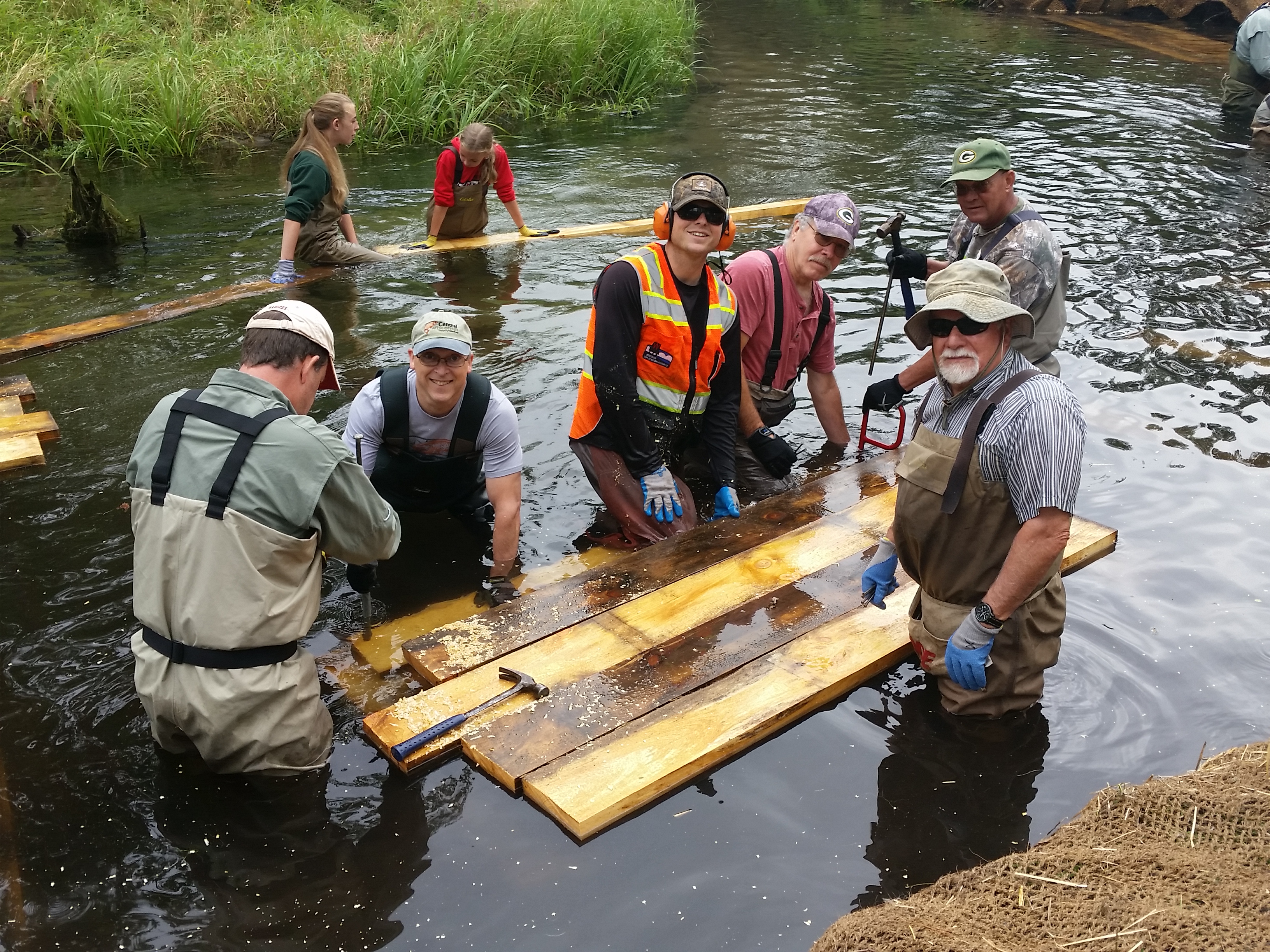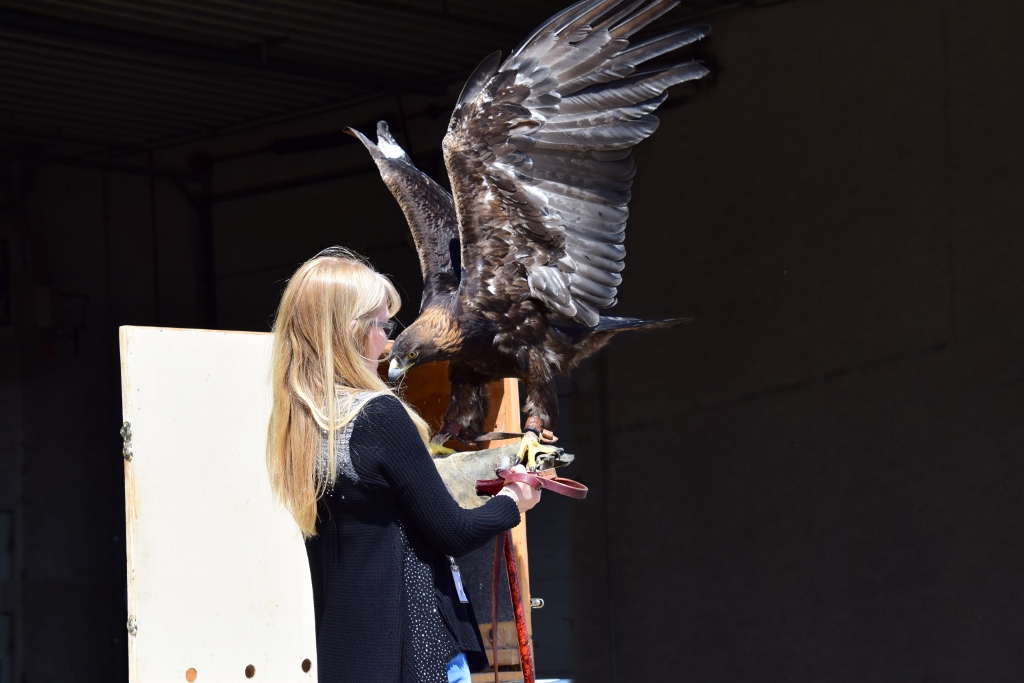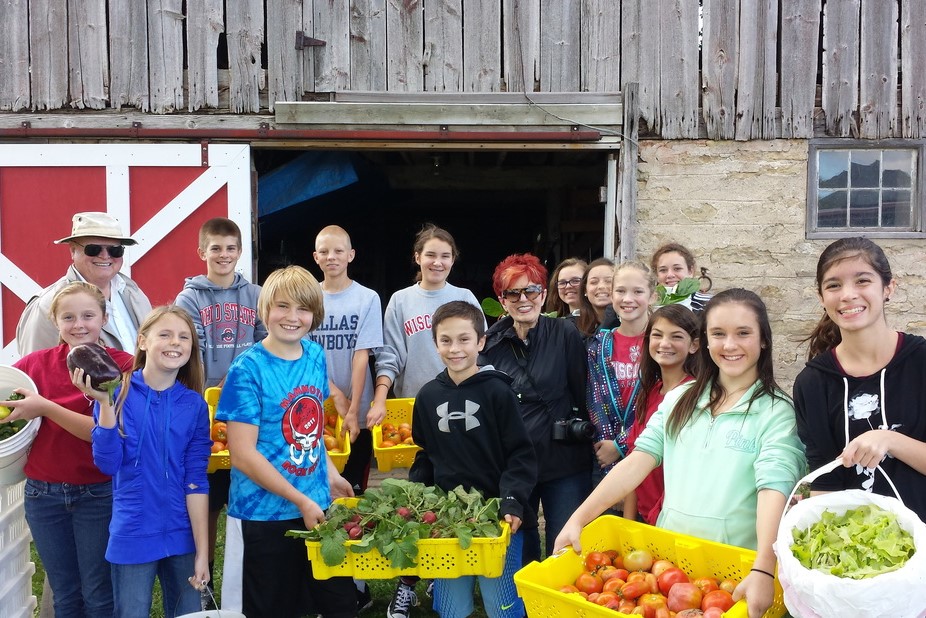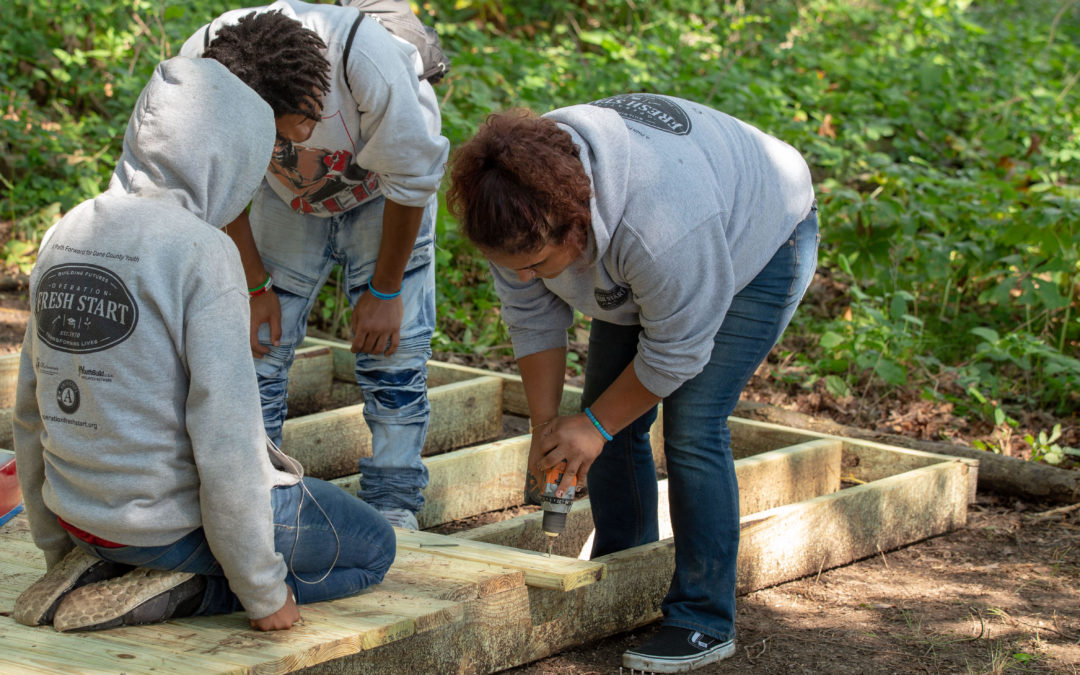
Volunteers working at the Groundswell Conservancy, photo via Roberta Herschleb
Established in 1990, our C.D. Besadny Conservation Fund supports conservation and education projects that benefits every part of Wisconsin—lands, waters, and wildlife—and connect Wisconsinites to natural resources through education and outreach. Every year the fund awards grants to new and original projects that engage underserved communities, connect with local resources and partnerships, and demonstrate real outcomes.
Grants range anywhere from $500 to $2,000. This year’s awards totaling $25,448 will fund 19 different projects across Wisconsin.
The 2019 awardees are working on several projects throughout the state including: making sure our parks and playgrounds are accessible to all, bringing high-quality educational programs to underserved communities, removing invasive species from natural areas, as well as critical monitoring and research for our lands and wildlife.

Central Wisconsin Trout Unlimited volunteers working, photo via CWTU
Lands & Waters
- Catholic Multicultural Center (Dane County)
- Restore and convert the CMC’s food pantry garden with native plants.
- Central Wisconsin Trout Unlimited (Winnebago County)
- Pilot a new field monitoring technique to improve water quality data in Wisconsin.
- Friends of Lapham Peak Unit (Waukesha County)
- Remove invasive species in several locations and trails.
- Groundswell Conservancy (Dane County)
- Purchase two new chainsaws for land restoration and management activities.
- Neighborhood House of Milwaukee (Dodge County)
- Restore and care for forests and prairies at the Nature Center, as well as fund educational programming.
- Riveredge Nature Center (Ozaukee County)
- Install rainwater barrels at 23 local schools.
- Upper Sugar River Watershed Association (Dane and Vernon Counties)
- Purchase equipment and tools for volunteers.

Hoo’s Woods Raptor Center Education Class, photo via Hoo’s Woods Raptor Center
Wildlife
- Bayfield County Adopt-A-Dumpster Program (Bayfield County)
- Provide disposal sites for deer hunters to support efforts to reduce the spread of chronic wasting disease.
- City of Janesville (Rock County)
- Install bat houses at a local park in Janesville.
- Friends of the Mead-McMillan (Portage, Wood, and Marathon Counties)
- Build a new waterfowl blind and boardwalk that is ADA accessible.
- Hoo’s Woods Raptor Center (Statewide)
- Fund raptor education programs for schools, low-income organizations, and seniors.

Schulte Garden Volunteers, Catholic Multicultural Center, photo via Schulte Gardens
Education & Outreach
- Friends of High Cliff State Park (Calumet County)
- Build an ADA accessible playground and recreation area.
- Friends of the North Pikes Creek Wetlands (Bayfield County)
- Build a new information kiosk at the Badger Hollow Outdoor Education area.
- Golden Sands Research Conservation & Development Council (Waushara and Waupaca Counties)
- Create new groundwater lesson programming.
- Harbor District (Milwaukee County)
- Fund environmental education both in the classroom and on field trips.
- Mississippi Valley Conservancy (Crawford County)
- Convert the Kickapoo Caverns cave entrance building to an educational center.
- Friends of Schlitz Audubon Nature Center (Milwaukee County)
- Engage 175 young students from the area in an ephemeral wetland monitoring citizen science project.
- Southeastern Wisconsin Invasive Species Consortium (multiple counties)
- Redesign SEWISC’s invasive species website for better education and accessibility.
- UW-Madison Arboretum (Dane County)
- Engage citizen scientists in a Mycoflora fungal monitoring citizen science project.
To learn more about the C.D. Besadny Conservation Fund or to apply next year, visit our webpage.
